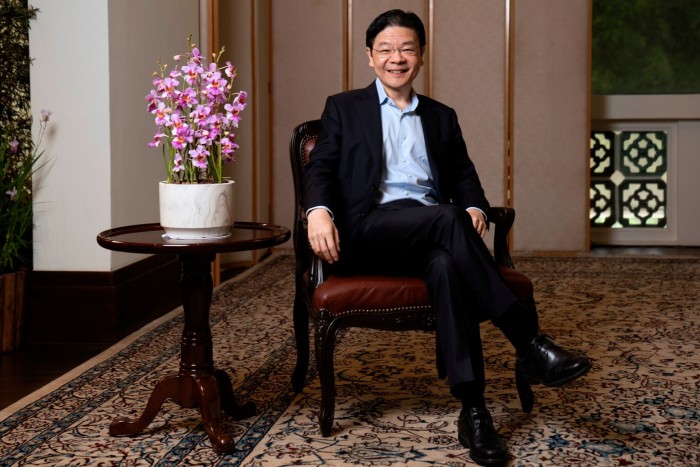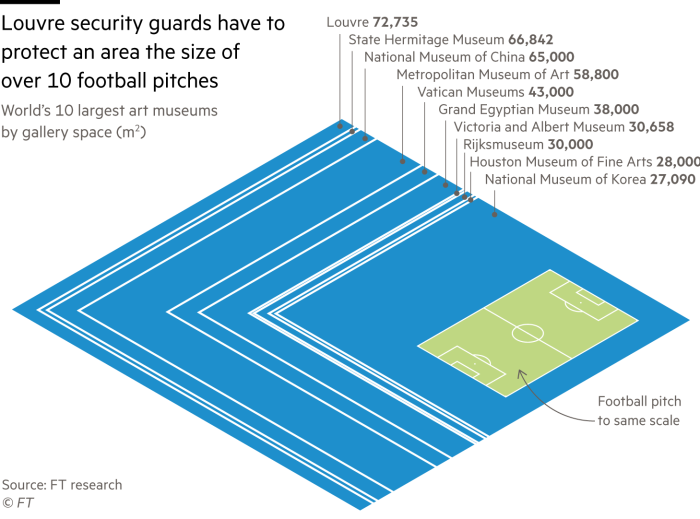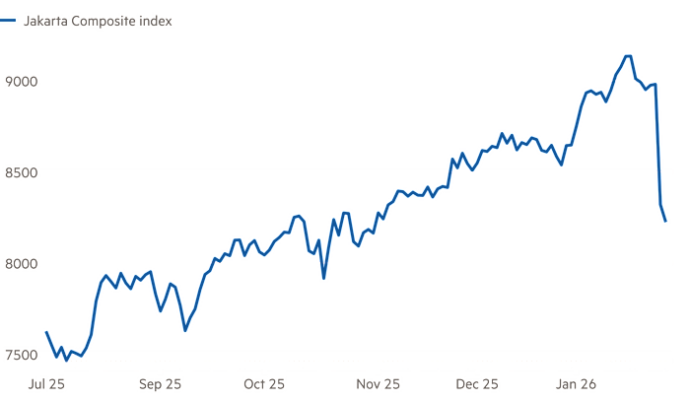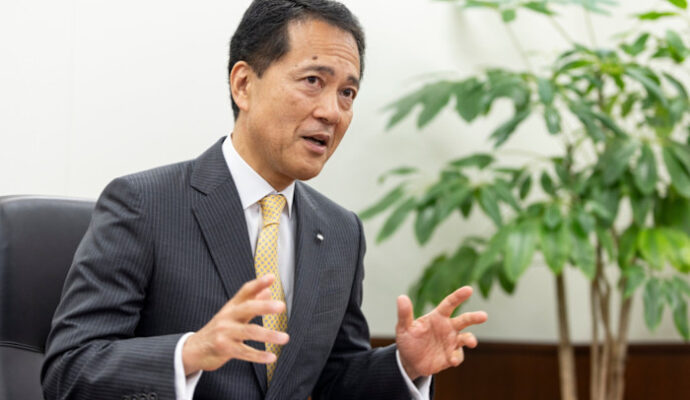This article is an on-site version of our FirstFT newsletter. Subscribers can sign up to our Asia, Europe/Africa or Americas edition to get the newsletter delivered every weekday morning. Explore all of our newsletters here
Good morning, happy Friday and welcome back to FirstFT Asia. In today’s newsletter:
Indian and Chinese refineries hit pause on Russian oil
Trump pardons Binance crypto founder
Singapore’s PM on the post-American order
The challenge of securing the Louvre
India and China’s largest refineries are looking at curbing purchases of Russian crude, as US sanctions on Russia’s largest oil companies reverberated through global energy markets yesterday.
What to know: Senior traders and officials said refineries were pausing most purchases, cutting off a key source of funds for Vladimir Putin’s war machine as Trump tries to drive the Russian leader to the negotiating table with Ukraine. Oil prices rose more than 5 per cent after the US measures against Russian groups Rosneft and Lukoil were announced.
What we’re hearing: India’s Reliance Industries said yesterday it would “recalibrate” its imports in line with government guidelines, while one person familiar with the discussions added that the group was unlikely to “take a chance” that could result in punishment by the US. A person who works closely with the largest Chinese state-backed oil companies and Indian refineries said they had all paused purchases following the imposition of US sanctions, though smaller independent Chinese refiners would continue to import Russian crude.
Wider implications: The measures unveiled on Wednesday specify that “participating foreign financial institutions” could be subject to secondary sanctions for doing business with Lukoil and Rosneft. This means that companies such as Reliance, which has global operations, may struggle to secure financing from US banks if they continue to purchase Russian oil directly.
Here’s how Putin responded to Trump’s sanctions — plus other reactions from across the energy sector.
Go deeper: Can Trump stop India and China from buying Russian oil and how do the sanctions work? FT reporters explain.
Related: The German government is racing to secure exemptions from US sanctions targeting Russia’s oil company Rosneft, which still owns three refineries in Germany.
More Ukraine war news: EU leaders have failed to back a €140bn loan to Kyiv using frozen Russian state assets following opposition from Belgium.
Here’s what else we’re keeping tabs on today and over the weekend:
Economic data: Japan reports September inflation data and department store sales.
US-China trade war: US Treasury secretary Scott Bessent and trade representative Jamieson Greer will meet Chinese vice premier He Lifeng in Kuala Lumpur for trade talks expected to continue through the weekend. The negotiations come ahead of an Asean summit in the Malaysian capital on Sunday — with Trump expected to attend.
Ukraine war: Leaders of the “coalition of the willing” countries meet today amid faltering peace talks.
Marco Rubio in Israel: Washington’s top diplomat meets Prime Minister Benjamin Netanyahu to discuss the Gaza ceasefire, a day after US vice-president JD Vance slammed an Israeli parliament vote to annex the West Bank.
How well did you keep up with the news this week? Take our quiz.
Five more top stories
1. China’s Communist party leaders have vowed to accelerate the country’s push towards self-reliance in cutting-edge technology amid rising tensions with the US. The statement from the party’s elite central committee meeting this week comes just months after President Xi Jinping warned against extreme price competition in the manufacturing sector and slammed reckless investment plans by provincial officials.
Opinion: For China, ferocious competition at home equips the strongest companies to prosper abroad, writes Yanmei Xie.
2. Former Citibank relationship manager Wang Qiming pleaded guilty and was sentenced to two years in jail in connection with helping a Chinese gang launder money into Singapore. Wang was the first financial services professional to be convicted of forgery over his involvement in the S$3bn ($2.3bn) scheme.
3. Changpeng Zhao, the co-founder of cryptocurrency exchange Binance, has been pardoned by Trump. Zhao, who pleaded guilty to criminal charges relating to lax money laundering controls, joins a growing list of crypto executives the US president has pardoned.
4. Intel reported better than expected revenues in the third quarter as the troubled chipmaker seeks to turn around its expensive effort to build advanced manufacturing in the US. It is its first earnings since big investments from the Trump administration, Nvidia and Japan’s SoftBank. The Silicon Valley tech group reported revenue was $13.7bn, up 3 per cent year-on-year.
5. Blackstone has said the era of excess returns in private credit has ended, with a golden age of mid-teens returns on private lending having given way to more muted investment results. Here’s what Blackstone president Jonathan Gray told the FT.
Interview: Singapore PM Lawrence Wong

Singapore’s prime minister has warned of a “messy” transition to a post-American order and urged immediate action to promote trade liberalisation and protect global common interests. In an interview at his office in the city-state, Lawrence Wong said the world was in the middle of a great transition that could take a decade to play out. Read the full interview — or watch it here.
We’re also reading . . .
Person in the News: Sanae Takaichi, Japan’s first female prime minister, must manage a nation in a state of painful flux.
Taiwan: New opposition leader Cheng Li-wun’s desire for warmer ties with Beijing risks antagonising the US and widening domestic political divisions.
Gambling scandal: An NBA player and a team head coach are among more than 30 people arrested as part of an FBI investigation into illegal sports betting and rigged poker games.
Quest for an AI phone: In order for artificial intelligence hardware to succeed, it must fit into life as we know it, writes Matt Rogers, the CEO of Mill.
John Burn-Murdoch and Sarah O’Connor explore how AI is transforming the world of work in their new newsletter, “The AI Shift”. Premium subscribers can sign up here. Standard subscribers can upgrade their subscription to receive it.
Chart of the day
Last Sunday’s extraordinary daylight heist has thrown the Louvre into crisis, exposing the frailties of the world’s largest museum. Officials in Paris are now racing to fix the security vulnerabilities exposed by the thieves.

Take a break from the news . . .
Algorithmic dating, like online dating in general, has overpromised and underdelivered, writes Tim Harford. Scientific matchmaking dates back at least to the 1920s, Tim says, and gives some early examples including a body odour test as he explains the limitations of today’s online matchmaking apps.



